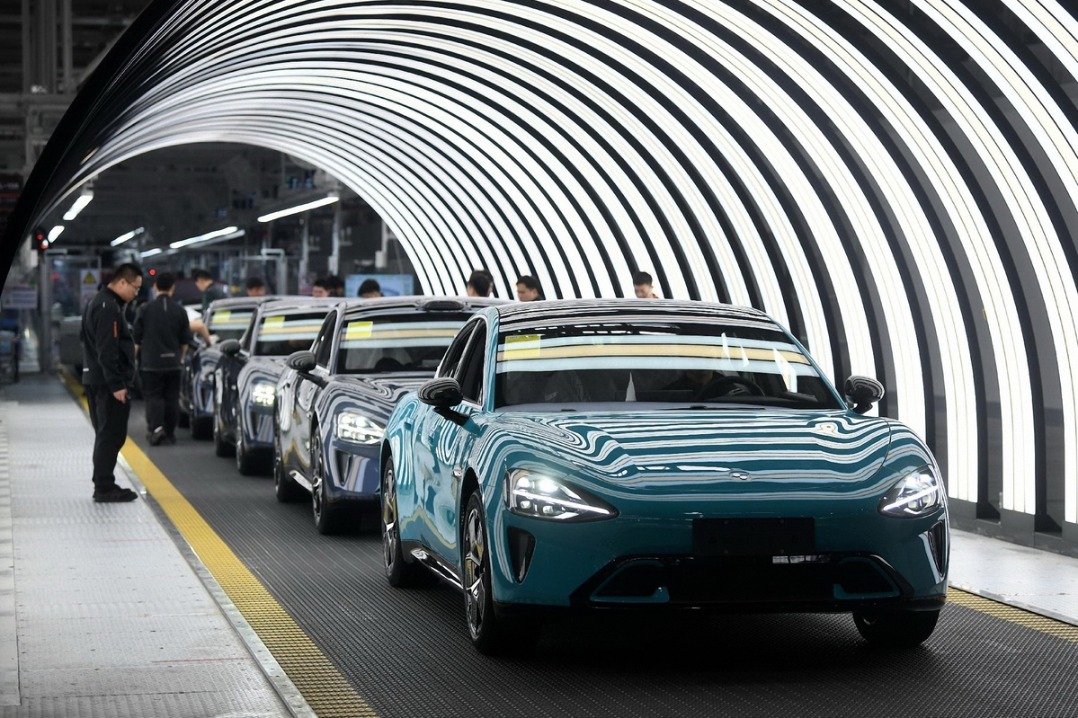Europe's carbon tariff draws mixed response
By EARLE GALE | China Daily Global | Updated: 2022-12-20 09:46
The European Union will start charging an extra fee on imports, proportionate to carbon emissions associated with them, prompting acclaim from environmentalists but criticism from some nations that say it amounts to a new protectionist trade barrier.
The EU has hailed the Carbon Border Adjustment Mechanism, or CBAM, as the world's first major carbon border tax and said it will encourage foreign exporters to lower their carbon emissions and therefore help protect the planet from global warming.
The bloc said the move will help it hit its target of reducing its carbon emissions to net-zero by 2050.
Peter Liese, a lead negotiator for the European Parliament, told the Reuters news agency the CBAM will be "the biggest climate law ever in Europe, and some say in the world".
But the Financial Times reported the EU's main trading partners say the move will expose them to unfair competition, with the United States and South Africa claiming foreign manufacturers of items such as steel and cement will stop selling to the EU and instead flood their marketplaces.
Sunday's agreement on the detail of the CBAM was accompanied by the finalization of several other elements of the EU's green deal, through which it aims to reform its trading system to better protect the environment.
Agreements included the establishment of a new hardship fund to support EU businesses that will be hit hard by the bloc's measures to curb climate change, and an extension of the bloc's emissions trading system to include road transport and the heating of buildings from 2027.
The bloc believes this move will drive up the cost of fossil fuels and make alternatives more attractive.
The bloc also agreed to speed up the phasing-out of free pollution vouchers, which will force European industries and energy companies to cut their emissions more quickly than previously planned.
The EU's executive, the European Commission, said the phasing-out of the vouchers means the bloc's enterprises will need to reduce their emissions by 62 percent of 2005's levels by 2030, instead of by 43 percent.
It said the more aggressive timetable prompted the need for the CBAM, as a way to ensure foreign companies do not benefit from the extra expenses EU companies will incur to meet the new target.
The Czech Republic's environment minister, Marian Jurecka, said the raft of measures puts the EU well ahead of the curve in tackling climate change.
"We can now safely say that the EU has delivered on its promises with ambitious legislation and this puts us at the forefront of fighting climate change globally," the Independent newspaper quoted him as saying.
The CBAM will need to be formally agreed by the bloc's 27 member nations, and by lawmakers in the European Parliament and will likely come into force in 2026.
























